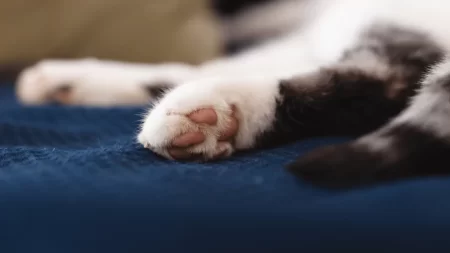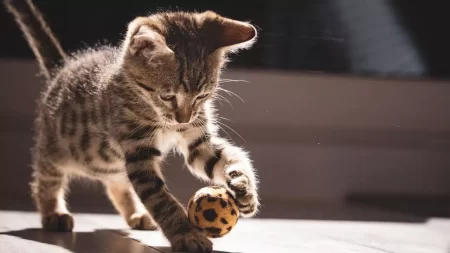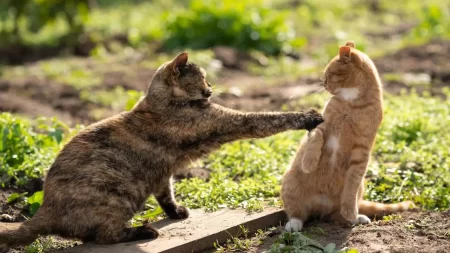Siamese cats are known for their outgoing and friendly personalities, but they can also be skittish or shy in certain situations. Some Siamese cats may be afraid of loud noises, sudden movements, or new people. However, with proper socialization and training, most Siamese cats can overcome their skittishness and become confident and outgoing pets.
Understanding the Personality of Siamese Cats
Siamese cats are among the oldest and most popular cat breeds. They originated in Thailand (formerly known as Siam) and were introduced to the Western world in the late nineteenth century. Siamese cats have short and glossy coat that contrasts their light and dark-colored points, which develop as they grow older due to a genetic mutation that affects their body temperature. They also have striking blue eyes that complement their elegant and slender body.
However, Siamese cats are not only admired for their looks but also for their personality. Siamese cats are highly intelligent, social, and outgoing cats that love to interact with their owners and other pets. They are often described as “dog-like” because of their loyalty, affection, and curiosity. They are also very vocal and noisy, and will not hesitate to express their opinions and feelings with their distinctive meows.
Some of the common personality traits of Siamese cats are:
- Sociable and outgoing nature: Siamese cats enjoy being around people and other animals, and will often follow their owners from room to room. They are not shy or timid and will greet visitors with curiosity and interest. They also like to play and need sufficient mental and physical stimulation to keep them happy and healthy.
- Deep bond with their owners: Siamese cats form strong attachments to their owners, and will show them immense love and devotion. They crave attention and affection, and will often snuggle and cuddle with their owners. They also prefer to sleep with their owners, and will sometimes even try to share their pillow.
- Possessive and aloof with strangers: Siamese cats can be very possessive of their owners, and may not like to share them with other pets or people. They can also be aloof and shy with strangers, especially if they feel threatened or insecure. They may hide or avoid contact with unfamiliar people or animals, or even show aggression or jealousy.
Reasons Why Siamese Cats Can Be Skittish
Skittish behavior in Siamese cats can be defined as being easily frightened, nervous, or anxious. Skittish cats may run away, hide, or act defensively when faced with unfamiliar or stressful situations. Skittish behavior can be caused by various factors, such as:
- New environment: Siamese cats can be skittish when they are introduced to a new home, a new family, or a new pet. They may feel overwhelmed or insecure by the changes and may take some time to adjust and feel comfortable. They may also be wary of potential dangers or threats in their new surroundings and may react with fear or aggression.
- Lack of stimulation: Siamese cats can be skittish when they are bored or understimulated. They may become restless, frustrated, or depressed, and may develop behavioral problems such as scratching, biting, or spraying. They may also seek attention or excitement by being noisy, destructive, or mischievous.
- Attention-seeking behavior: Siamese cats can be skittish when they are ignored or neglected by their owners. They may feel lonely, sad, or angry, and may try to get their owners’ attention by being loud, clingy, or demanding. They may also act out by being naughty, rebellious, or spiteful.
- Unmet basic needs: Siamese cats can be skittish when they are not provided with their basic needs, such as food, water, litter box, toys, scratching posts, and grooming. They may feel stressed, anxious, or unhappy, and may show signs of physical or emotional distress, such as loss of appetite, weight loss, hair loss, or excessive grooming.
- Past trauma or abuse: Siamese cats can be skittish when they have experienced trauma or abuse in their past, such as being abandoned, mistreated, or injured. They may have developed trust issues, low self-esteem, or post-traumatic stress disorder, and may be fearful, timid, or aggressive towards people or animals. They may also have flashbacks, nightmares, or panic attacks.
Dealing with Skittish Behavior in Siamese Cats
Skittish behavior in Siamese cats can be challenging and frustrating for both the cats and their owners. However, there are some ways to help Siamese cats overcome their skittishness and become more confident and relaxed. Some of the tips to deal with skittish behavior in Siamese cats are:
- Providing active playtime: Siamese cats need regular and interactive playtime to keep them stimulated, entertained, and happy. Playing with Siamese cats can also help them release their pent-up energy, reduce their stress, and strengthen their bond with their owners. Owners can use various toys, such as balls, feathers, lasers, or catnip, to engage their Siamese cats in fun and challenging games.
- Ensuring proper socialization: Siamese cats need early and consistent socialization to help them become more comfortable and friendly with people and other animals. Owners can introduce their Siamese cats to different people, pets, and situations gradually and positively, and reward them with praise, treats, or affection for their good behavior. Owners can also avoid forcing their Siamese cats to interact with anyone or anything that makes them uncomfortable or scared and respect their boundaries and preferences.
- Creating a calm and comfortable environment: Siamese cats need a calm and comfortable environment to feel safe and secure. Owners can provide their Siamese cats with a cozy and quiet place to sleep, rest, and hide, such as a bed, a crate, or a cardboard box. Owners can also make sure that their Siamese cats have access to their basic needs, such as food, water, litter box, toys, scratching posts, and grooming tools. Owners can also use calming products, such as pheromones, aromatherapy, or music, to help their Siamese cats relax and cope with stress.
- Seeking professional help if necessary: Siamese cats may need professional help if their skittish behavior is severe, persistent, or affecting their health and well-being. Owners can consult their veterinarian, a cat behaviorist, or a trainer to diagnose the cause of their Siamese cats’ skittishness and provide them with appropriate treatment, such as medication, therapy, or training.







